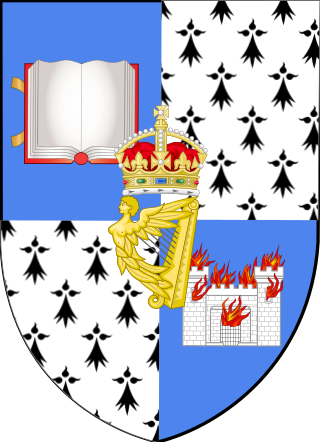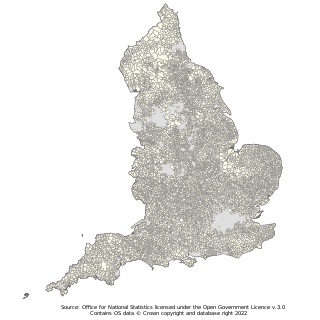External links
| Governance | ||
|---|---|---|
| History | ||
| Colleges | ||
| Schools and institutes | ||
| Halls of Residence | ||
| Student life | ||
| Miscellaneous | ||
| Categories | ||
The General Council of the University of St Andrews is the corporate body of all graduates and senior academics of the University of St Andrews in Scotland. It was instituted by the Universities (Scotland) Act 1858, but its constitution and organisation have been considerably altered by subsequent statutes.
The business of the council is to take into consideration all questions affecting the well-being and prosperity of the university, and to make representations from time to time on such questions to the University Court, who shall consider the same, and return to the council their deliverance thereon. Members may raise any matter bearing upon the university, by reference to the convener of the business committee of the general council, College Gate, St Andrews.
The council elects two assessors to the University Court. No member of the Senatus Academicus is entitled to vote or take part in the election of any assessor of the general council. (The senate elects its own assessors to the court.)
The membership of the general council is governed by ordinance No. 96 of the University of St Andrews and is as follows:-
The Chancellor of the University is elected by the General Council and is the President of the Council.
Under the Universities (Scotland) Act 1966, new Ordinances and Resolutions are communicated in draft form to the general council, whose opinion thereon is taken into consideration.
The affairs of the council are conducted by a business committee exercising duties determined by the council in accordance with the council's instructions.
The Constitution and duties of the business committee, as determined by the council, are as follows:-
Constitution
1. The Business Committee shall consist of: (a) Members ex officio (b) Elected Members
2. The following shall be members ex officio: (a) The principal. (b) The Chancellor's Assessor on the University Court. (c) The Assessors of the General Council on the University Court. (d) The Conveners of all other Committees (and standing Sub-Committees) of the general council. (e) Two of the co-opted members of the University Court are alumni.
3. (a) The elected members shall be twelve in number. (b) They shall hold office for four years. (c) An elected member shall be eligible to stand for re-election at the end of one four-year term, but having served two consecutive terms shall be ineligible either to stand for a third or to be co-opted on to the committee during the two years before the next round of elections.
4. (a) The election of members shall be by Single Transferable Vote and shall take place every two years by a process of electronic voting agreed by the general council in 2006 as revised in November 2011 and June 2014. (b) If a vacancy occurs in the membership of the committee, either because a member has demitted office before their term has expired or because an insufficient number of candidates have stood for election, the committee may co-opt a new member to fill the vacancy, unless they are excluded by paragraph 3(c), and subject to their being approved at the next General Council meeting. The combined number of elected and co-opted members shall not exceed twelve. Such a co-opted member shall serve until the next round of elections, when they shall be eligible to stand as a candidate. Should there be an election for Convener or Vice-convener during their period of service, a co-opted member of the business committee shall be eligible to participate as a candidate, proposer or seconder, and they shall have a vote.
Duties
The duties of the business committee are to transact business remitted to the committee by the general council, to frame the programme of business to be submitted to meetings of the council, and to act on behalf of the council, under powers specifically conferred upon the committee, or in circumstances of emergency.

The University of Dublin, corporately designated the Chancellor, Doctors and Masters of the University of Dublin, is a university located in Dublin, Ireland. It is the degree-awarding body for Trinity College Dublin. It was founded in 1592 when Queen Elizabeth I issued a charter for Trinity College as "the mother of a university", thereby making it Ireland's oldest operating university. It was modelled after the collegiate universities of Oxford and of Cambridge, but unlike these other ancient universities, only one college was established; as such, the designations "Trinity College" and "University of Dublin" are usually synonymous for practical purposes.

A parish council is a civil local authority found in England, which is the lowest tier of local government. They are elected corporate bodies, with variable tax raising powers, and they carry out beneficial public activities in geographical areas known as civil parishes. There are about 10,480 parish and town councils in England. Parish councils may be known by different styles, they may resolve to call themselves a town council, village council, community council, neighbourhood council, or if the parish has city status, it may call itself a city council. However their powers and duties are the same whatever name they carry.

The Georgia General Assembly is the state legislature of the U.S. state of Georgia. It is bicameral, consisting of the Senate and the House of Representatives.
The Glasgow University Students' Representative Council, also known simply as the Students' Representative Council or by the acronyms GUSRC and SRC is a student union at the University of Glasgow. Unlike at other universities in the United Kingdom, the University of Glasgow operates a unique system, with four separate and independent bodies providing services to the student body. In contrast with the Glasgow University Union, Queen Margaret Union, and Glasgow University Sports Association, which provide social and sporting facilities for their members respectively, the SRC is responsible for representing the views and interests of the student body to the University.

The Election Committee is the electoral college in Hong Kong that selects the Chief Executive (CE) and, since 2021, elects 40 of the 90 members of the Legislative Council. Established by Annex I of the Basic Law of Hong Kong which states that "the Chief Executive shall be elected by a broadly representative Election Committee in accordance with this Law and appointed by the Central People's Government ." It is formed and performs its selection function once every five years, even in the event of a CE not completing their term. The membership of the Election Committee was expanded to 1,500 under the massive overhaul of the electoral system in 2021. The Election Committee has been criticised for its "small-circle" electoral basis and its composition favouring pro-Beijing and business interests.
In corporate governance, a governance board also known as council of delegates are chosen by the stockholders of a company to promote their interests through the governance of the company and to hire and fire the board of directors.
Custos rotulorum is a civic post that is recognised in the United Kingdom and in Jamaica.
Governance of the University of St Andrews is laid down in a series of Acts of Parliament enacted between 1858 and 1966, and the Higher Education Governance (Scotland) Act 2016.
An academic senate, sometimes termed faculty senate, academic board or simply senate, is a governing body in some universities and colleges, typically with responsibility for academic matters and primarily drawing its membership from the academic staff of the institution.
The general council of an ancient university in Scotland is the corporate body of all graduates and senior academics of each university. They were instituted by the Universities (Scotland) Act 1858, but each has had its constitution and organisation considerably altered by subsequent statutes.

The chair, also chairman, chairwoman, or chairperson, is the presiding officer of an organized group such as a board, committee, or deliberative assembly. The person holding the office, who is typically elected or appointed by members of the group or organisation, presides over meetings of the group, and is required to conduct the group's business in an orderly fashion.

Parliament of Sierra Leone is the legislative branch of the government of Sierra Leone. It is principally responsible for making laws. The Sierra Leone parliament consists of 149 members, of which 135 members are directly elected from across Sierra Leone's 16 districts, while 14 are paramount chiefs appointed from the 14 rural districts. The parliament is led by the Speaker of the House; the position is currently held by Abass Bundu of the Sierra Leone People's Party. The current elected 135 ordinary members of parliament are composed of members of the All People's Congress and the Sierra Leone People's Party which are the two largest political parties in Sierra Leone.
This is a brief description of the lawmaking procedure in India.

Hong Kong Metropolitan University is a public university in Ho Man Tin, Kowloon, Hong Kong.

The rector of the University of Dundee is elected by the matriculated students of the University of Dundee. From 1967 to 2010, the rector was automatically a full member of the University Court. The rector also had the right to appoint an assessor, who was also a full member of the University Court. Following changes made to the university charter in August 2010, the rector must choose to take up full membership of the University Court or appoint an assessor who has full voting rights.
The ancient university governance structure in Scotland is the organisational system imposed by a series of Acts of Parliament called the Universities (Scotland) Acts 1858 to 1966. The Acts applied to what were termed the 'older universities': the University of St Andrews, the University of Glasgow, the University of Aberdeen and the University of Edinburgh. Together these four universities are commonly referred to as the ancient universities of Scotland. Whilst the Acts do not directly apply to the University of Dundee, the same governance structure was ordained for use by that institution in its royal charter.
The President of the New South Wales Legislative Council is the presiding officer of the upper house of the Parliament of New South Wales, the Legislative Council. The presiding officer of the lower house is the speaker of the Legislative Assembly. The role of President has generally been a partisan office, filled by the governing party of the time. As of May 2023, the president is Ben Franklin.
John J. Mullen was an American politician who served as Mayor of Everett, Massachusetts from 1917 to 1918.
The Constitutional Council (CC) is a 10-member constitutional authority in Sri Lanka tasked with maintaining independent commissions and monitoring its affairs. The Constitutional Council is aimed at depoliticizing the public service.

The Chairman of the Federation Council of the Federal Assembly of the Russian Federation, also informally called Speaker (спикер), is the presiding officer of the Upper house of the Russian parliament. It is the third highest position, after the President and the Prime Minister, in the government of Russia. In the case of incapacity of the President and Prime Minister, the chairman of the Federation Council becomes Acting President of Russia.